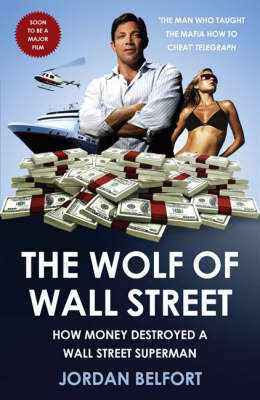- the UK and Australia are still experiencing bubbles in housing
- there are potential bubbles in commodities and emerging markets
- savers are being tempted (I'd say almost forced) into speculating when they should be cautious
- the US stockmarket is generally overpriced, but...
- investors should be more interested in big, boring, robust companies such as Coca-Cola, Microsoft and Johnson & Johnson
Sunday, April 25, 2010
Safety first
Investment expert Jeremy Grantham gives his views via Financial Times video:
Inflation vs deflation
This article in The Economic Voice echoes what I've been saying for quite some time: the inflation issue is subject to market segmentation. Basics are costing more, luxuries are being sold at a discount. Though I suspect that luxuries of the very rich are another segment altogether.
Similarly, housing is segmented: the cost of basic stock in average income areas will, I think, decline in real terms, but the nicest property in the wealthiest areas may hold up OK. We're like different species in the sea, each with its optimum depth-habitat and ecosystem.
Similarly, housing is segmented: the cost of basic stock in average income areas will, I think, decline in real terms, but the nicest property in the wealthiest areas may hold up OK. We're like different species in the sea, each with its optimum depth-habitat and ecosystem.
Crime, compulsion and rescue
 I recently read this outrageous confessional by super-successful pump-and-dumper Jordan Belfort.
I recently read this outrageous confessional by super-successful pump-and-dumper Jordan Belfort.I'm not particularly sold on sorry-for-criminals (The Godfather, The Sopranos and all the rest of that genre); I think it's an emotional con that salves our conscience for being imaginatively complicit in the crimes.
But I do think Belfort is a victim as well as a perpetrator; a driven, a hag-ridden man. How much of history has been shaped by these out-of-control types? Mao saw himself as a destructive natural force; Stalin wondered why people had always helped him.
One feature of Belfort's story that sticks in my mind is how he used the louche, high-burn lifestyle at Stratton-Oakmont as a means to enslave his employees. As he explained (p.86) to his financially prudent father during a row about expenses:
"There's a method to my madness, especially when it comes to the spending. It's important to keep these guys chasing the dream. And it's even more important to keep them broke. Look at them; as much money as they make, every last one of them is broke! They spend every dime they have, trying to keep up with my lifestyle. But they can't, because they don't make enough. So they end up living paycheck to paycheck on a million bucks a year. It's hard to imagine, considering how you grew up, but, nevertheless, it is what it is.
"Anyway, keeping them broke makes them easier to control. Think about it: virtually every last one of them is leveraged to the hilt, with cars and homes and boats and all the rest of that crap, and if they miss even one paycheck they're up shit's creek. It's like having golden handcuffs on them. I mean, the truth is I could afford to pay them more than I do. But then they wouldn't need me as much. But if I paid them too little, then they would hate me. And as long as they need me they'll always fear me."
Belfort is plenty clever enough to play the repentant sinner - his book makes clear his manipulative approach to loved ones as well as employees - but it may well be that a part of him wanted to be stopped. The addictive, compulsive pleasuring is a whirring of hind legs scrambling to get away from the edge of what Clarissa Dickson-Wright calls "the abyss", to which even death is preferable. His permanently overactive mind required daily stunning with Quaaludes, because he didn't know how else to slow it down.
Returning to Stalin, another who could control everything except himself, I recall a TV programme about concert pianist Maria Yudina, who dared to write to him in frank terms that one would have thought were certain to get her shot or sent to Siberia. I have tried to find a transcript but this is the best I can do - though I clearly remember she referred not to his soul, but his "black heart". She had a courage almost insane. And yet he spared her. Was there a speck of gold left in the Stygian recesses of his spirit? I think so. When anticlericals have finished railing against bells and smells, there will still be the issue of the abyss and the light.
Lloyd Blankfein
Save the young
We speak of the fecklessness and selfishness of the young, but overlook the much greater selfishness of their elders. You'd think that in an ageing population and with a declining ratio between those of working age and the retired, there'd be no end of work available. Not so.
As this article from Business Insider shows, the under-25s are far worse off, financially and careerwise, than their elders. Also today, Liz Jones takes a break from reflecting on her train-wreck of a life to consider the plight of bright, aspiring youngsters in a job market that either won't give them a chance or takes them on as unpaid interns for "experience" that still won't get them any closer to earning a living afterwards.
Vampire squid? That's us.
As this article from Business Insider shows, the under-25s are far worse off, financially and careerwise, than their elders. Also today, Liz Jones takes a break from reflecting on her train-wreck of a life to consider the plight of bright, aspiring youngsters in a job market that either won't give them a chance or takes them on as unpaid interns for "experience" that still won't get them any closer to earning a living afterwards.
Vampire squid? That's us.
Bile
"All these moments will be lost, like tears in rain". I have submitted the following comments to a post on Hatfield Girl's elegant column; I hope to be wrong.
Unfortunately, the disparities of wealth in the global economy are fostering the growth of rootless business magnates, to the detriment of the social stability of developed industrial economies.
These magnates have realized (as Rockefeller did, long before) that ownership of distribution is even more powerful than ownership of the means of production; especially when it is accompanied by ownership of the means of communication, as "Chinese" Murdoch understands.
The Fourth Estate's weakness is compounded by the suborning of academia: 20,000 professional economists, of whom only 0.06% understood the significance of debt and foresaw the present crisis, act as berobed yes-men to the sultans of international trade.
Our political representatives have been exposed as venal careerists heavily incentivised to foster the acquis communautaire. In the General Election, we are offered a choice of one, in three avatars. Stick a pin in the roll of MPs and you are more likely than not to hit Lord Jim.
Once Western economies have been mined-out and markets in the East have evolved to a size capable of absorbing their own output, the East will have little further use for us and our freshly-printed toy money.
We shall also discover that, in practice, the vaunted fraternal benevolence of international Communism comes a very long way second to national self-interest and genetic similarity.
Unfortunately, the disparities of wealth in the global economy are fostering the growth of rootless business magnates, to the detriment of the social stability of developed industrial economies.
These magnates have realized (as Rockefeller did, long before) that ownership of distribution is even more powerful than ownership of the means of production; especially when it is accompanied by ownership of the means of communication, as "Chinese" Murdoch understands.
The Fourth Estate's weakness is compounded by the suborning of academia: 20,000 professional economists, of whom only 0.06% understood the significance of debt and foresaw the present crisis, act as berobed yes-men to the sultans of international trade.
Our political representatives have been exposed as venal careerists heavily incentivised to foster the acquis communautaire. In the General Election, we are offered a choice of one, in three avatars. Stick a pin in the roll of MPs and you are more likely than not to hit Lord Jim.
Once Western economies have been mined-out and markets in the East have evolved to a size capable of absorbing their own output, the East will have little further use for us and our freshly-printed toy money.
We shall also discover that, in practice, the vaunted fraternal benevolence of international Communism comes a very long way second to national self-interest and genetic similarity.
Wednesday, April 21, 2010
Wall Street vs Main Street
 ... one of the reasons why, when a country suffers economic problems, the latter may not be reflected in the performance of shares on that country's stock exchange (htp: Wall Street Pit).
... one of the reasons why, when a country suffers economic problems, the latter may not be reflected in the performance of shares on that country's stock exchange (htp: Wall Street Pit).But if the fate of big business is now less closely intertwined with the good of its host country, perhaps the nature of their relationship could turn from symbiotic to parasitic.
Subscribe to:
Comments (Atom)
